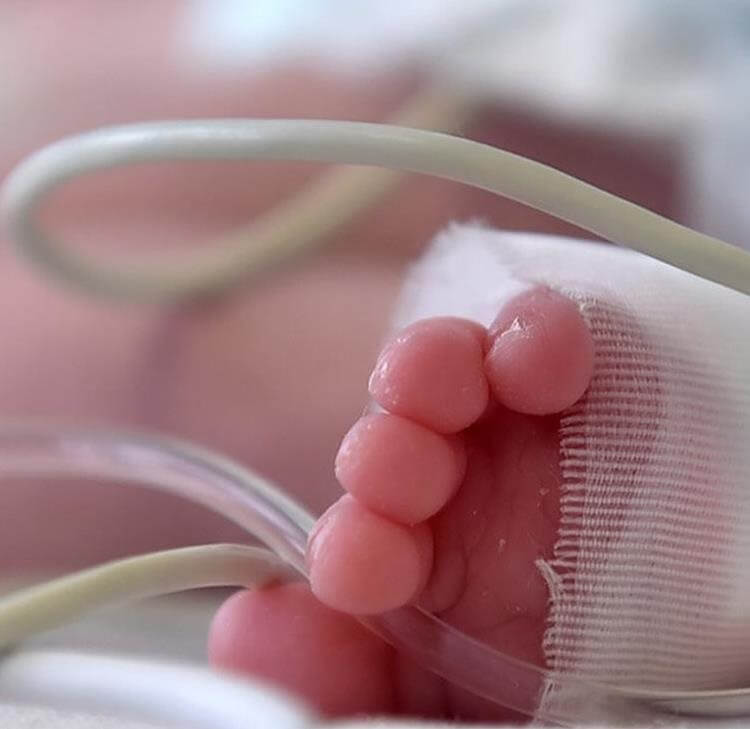The impact of coronavirus on the management of complaints and serious incident investigations in the NHS
Given the significant challenges and resource implications of the coronavirus on all NHS staff, how should Trusts manage and respond to complaints and Serious Incident Investigations? Do the relevant time limits still apply?
Given the significant challenges and resource implications of the coronavirus on all NHS staff, how should Trusts manage and respond to complaints and Serious Incident Investigations? Do the relevant time limits still apply?
Complaints
NHS Trusts are likely to experience difficulties in responding substantively to complainants within the usual timeframes, as clinical staff are unable to provide the information needed by complaints teams to enable a detailed response to be provided to a complainant.
As a result, NHS Trusts should review local policies to consider any necessary changes needed to the timeframe for responding to complaints and ensure that any changes are communicated to complainants, providing updates as and when appropriate.
In this respect, the Parliamentary Health and Social Care Ombudsman (PHSO) has confirmed that it will not penalise NHS Trusts for any delays in responding to complaints caused by the pandemic. In addition, from 26 March 2020, in recognition of the additional burden on the NHS at this time, the PHSO will not be progressing its own existing health complaints or accepting any new complaints. All complaints in time as at 26 March 2020 will be treated as in time when the PHSO resumes its consideration of health complaints.
Trusts who have completed the local complaints process and are issuing a final decision are asked not to refer the complainant to the PHSO. Instead, Trusts should use the following wording in the final decision letter:
“If you’re not happy with how we’ve dealt with your complaint, you are entitled to raise your complaint with the Parliamentary and Health Service Ombudsman. However, please note that the Ombudsman is currently not accepting any new complaints about the National Health Service because of the coronavirus pandemic. This is to help ensure the NHS can focus its resources on providing urgent healthcare. You can find out more information on the Ombudsman’s website www.ombudsman.org.uk”.
Serious Incident (SI) Investigations
Under the Serious Incident Framework (SIF), SI reports and action plans must be submitted within 60 working days of an incident being reported to the relevant Commissioner. However, this timeframe is also likely to be affected by the impact of coronavirus given the need for clinical staff to be delivering front line care. The SIF acknowledges that there may be ‘compelling reasons’ where a Trust finds it difficult to complete a final report within 60 days and there is therefore provision for an investigation team to agree an alternative timeframe with the Commissioner. Any extension should be clearly recorded in the serious incident management system and included in the final SI report and of, course, patients/families and/or carers should be kept informed and updated about any changes to timeframes.
Patient safety remains important at this time and whilst it may not be possible to complete a SI report and detailed action plan, any evident learning or relevant information arising from a SI should be highlighted and shared with relevant teams to prevent recurrence of harm.
It is not yet clear what impact the coronavirus pandemic will have on the implementation of the Patient Safety Incident Response Framework (PSIRF) which was published on 10 March 2020 and is due to replace the SIF by the end of 2021.
Summary
It is universally recognised that the provision of front-line health care must take priority at this extraordinary time and that consequently, there are likely to be unavoidable delays in responding substantively to complaints and/or progressing SI investigations.
It is important that Trusts are reasonable in the approach taken to any extensions needed. However, the key with all of this is clear communication, both with the relevant Commissioner, where appropriate, but also, crucially, with patients/families/carers so that they are aware of and appreciate the difficulties faced. It is likely that in some cases, given the developing situation, it is not possible to agree a definitive timescale, but this should be kept under review and action to investigate a complaint and/or SI should be taken as soon as it is possible to do so.
We can provide support to NHS Trusts understandably concerned about the potential backlog to complaint responses and SI investigations caused by the coronavirus emergency. If you would like to discuss how we might be able to assist your organisation, please contact Amelia Newbold.
Contact

Amelia Newbold
Risk Management Lead
Amelia.Newbold@brownejacobson.com
+44 (0)115 908 4856
Related expertise
You may be interested in...
Opinion - Maternity services
University Hospital Leicester hold their inaugural Maternity Safety Conference
In Person Event
Navigating your way through high profile sensitive reviews and investigations
Opinion
Junior doctors vote unanimously in favour of strike action
Opinion
Can toilet facilities amount to sex discrimination?
Published Article
Digital Twin Technologies: key legal contractual considerations
Opinion
Consultation launched on minimum ambulance service levels during strike action
Opinion - Maternity services
Changes to redundancy protections for employees post-maternity leave
Legal Update - Shared Insights
Shared Insights: Coroners’ Question Time
Press Release - Careers
Browne Jacobson health lawyer wins major accolade at Made in Manchester Awards
Opinion
BMA issues medical locum rate card for junior doctors
Legal Update
Employee who refused to wear a face mask fairly dismissed
Opinion
New toolkit to support safer recruitment in the care sector
Legal Update
Green Leases for the NHS
Guide
Government response to the consultation on the Higher-Risk Buildings Regulations
Published Article
The first 100 days for Integrated Care Boards
Opinion
Menopause and the workplace
On-Demand
Future of Care - Retirement Living webinar
In Person Event
Independent Healthcare In-House Lawyers Forum
Legal Update
Safeguarding at scale report published
Opinion
Government introduces new “anti-striking laws” to be discussed in Parliament
Press Release - Maternity services
Father Christmas comes to University Hospital Coventry and Warwickshire care of Browne Jacobson’s Birmingham Office Community Action Group
Opinion - Maternity services
The Patient Safety Incident Response Framework (PSIRF) and its impact on maternity services
Legal Update - Shared Insights
Shared Insights: Looking ahead to 2023 – what Health and Care employers need to know
Opinion
Coroner’s refusal to issue a Prevention of Future Deaths Report following death in prison custody inquest was lawful
Article
Mental health, eating disorders and placement of young people
Legal Update
LPS consultation and ‘go live’ planning
Opinion
Consultation launched on plans to amend NHS pension rules to bolster NHS workforce
Legal Update
Getting ready to face Industrial Action
Legal Update - Shared Insights
Shared Insights: Prolonged disorders of consciousness
Published Article
How AI and technology can transform the healthcare sector
On-Demand
The UK's green agenda - the outcomes of COP27 and actions since COP26
On-Demand
Insights from the Chief Coroner by His Honour Judge Thomas Teague, KC
Opinion
BMA advises consultants not to accept less than the BMA minimum rate card for extra-contractual work
The BMA is advising all NHS / HSCNI consultants to ensure extra-contractual work is paid at the BMA minimum recommended rate and to decline offers of extra-contractual work that doesn't value them appropriately.
On-Demand
Leadership and lessons learnt during the Pandemic by Professor Jonathan Van-Tam
Legal Update - Shared Insights
Shared Insights: The Patient Safety Incident Response Framework
Guide - Maternity services
Mediation guide for Clinicians: What do you need to know and how do you need to prepare
Opinion
NHS England – Updated Transaction Guidance
NHS England has published (October 2022) new guidance - Assuring and supporting complex change: Statutory transactions, including mergers and acquisitions.
Opinion
NHS England – Assuring and supporting complex change
NHS England has issued an updated (publication 11 October 2022) suite of Complex Change guidance about how it will assure and support proposals for complex change that are reportable to it. New and (where it is still in force) existing Complex Change guidance are as follows.
Legal Update
The Retained EU Law
Created at the end of the Brexit transition period, Retained EU Law is a category of domestic law that consists of EU-derived legislation retained in our domestic legal framework by the European Union (Withdrawal) Act 2018. This was never intended to be a permanent arrangement as parliament promised to deal with retained EU law through the Retained EU Law (Revocation and Reform) Bill (the “Bill”).
Legal Update
Economic crime and cybercrime
It is clear that the digital landscape, often termed cyberspace, is a man-made environment, in which human behaviour dominates and where technology both influences and aids our role in it — through the internet, telecoms and networked computer systems, which are often interdependent. The extent to which any organisation is potentially vulnerable to cyber-attack depends on how well these elements are aligned.
























